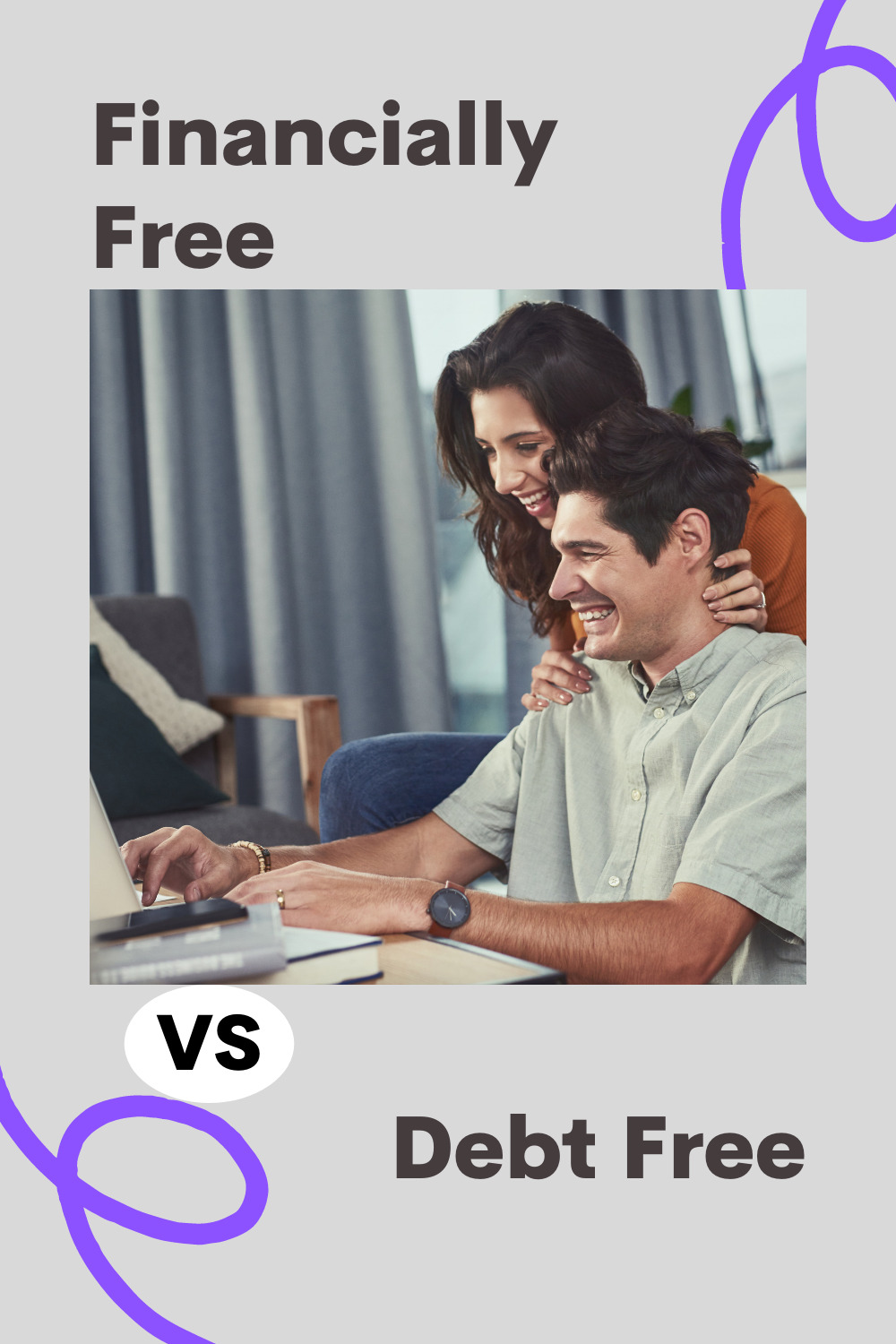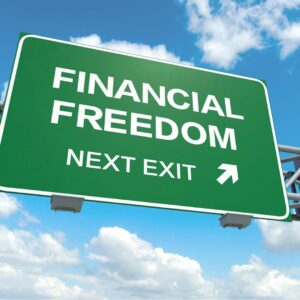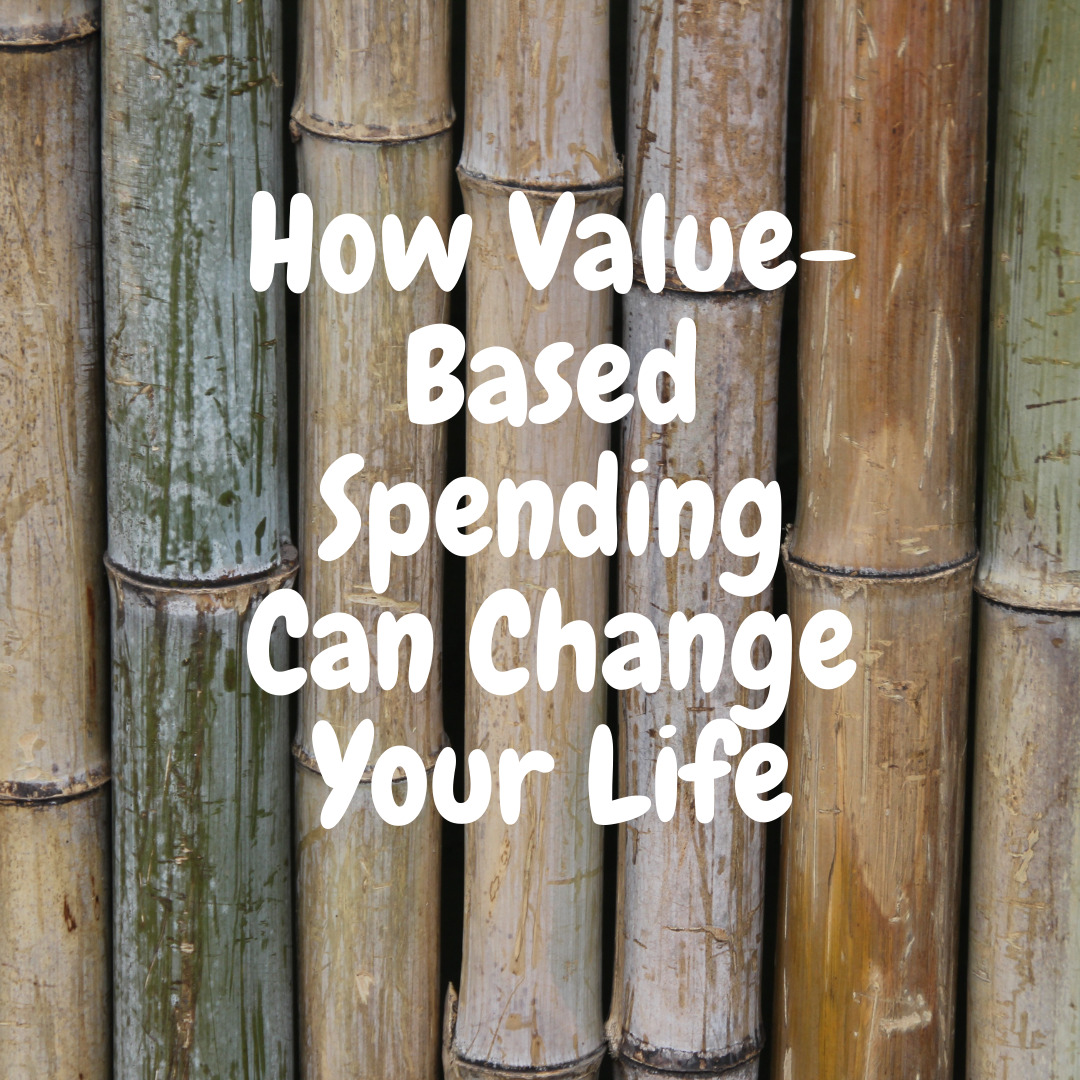Financially free or debt free? Are they the same thing or is one better than another? Do you have to be debt free to be financially free? These are questions I hear a lot, and I think there’s a lot of confusion between the two.
Financial Freedom Defined
The term financially free can be described many different ways. Financial freedom, financial independence, independently wealthy, financially independent—these terms all mean basically the same thing. To give a broad definition, it’s when your passive income stream supports your cost of living so that you don’t have to work for money.
Let’s talk about what financial freedom does not mean. Financial freedom doesn’t mean you have an endless supply of money to spend however you want. It just means that you don’t have to work for money to support your lifestyle. What your lifestyle is depends on your values and the amount of money you have to support that lifestyle. There’s a basic assumption that your spending as a financially free person will be similar to when you were working.
To clarify, it is possible to spend without worry as a financially free person, but that’s not necessarily the definition of financial freedom. That’s more of a description of a rich person who is also financially free. There are multiple layers to financial freedom that I address in my post about the FIRE movement.
Think of financial freedom as a continuum. On one end of the continuum is having just enough money to support a very basic lifestyle. On the other end, it would be having enough money to buy whatever you want at any time. Where you want to be on that continuum is up to you and your family.
Debt Free Defined
Debt free is a pretty easy definition. It literally means that you don’t owe anyone money. No credit card companies, no car loan, no mortgage, no anything. Everything is paid off, or not taken out as debt in the first place. It doesn’t mean that you have a lot of assets, a steady income stream, or a high net worth though. In a vacuum, debt free is simply not owing anyone money.
Financially Free and Debt Free Expanded
Now that we have very basic definitions of financially free and debt free, let’s go deeper. Being financially free requires that you have something other than a job providing you with monthly income. That can be a pension, social security, stock dividends, rental property income, and a multitude of other things. It can come from just one source or be a combination of several sources.
A financially free person can have debt as long as their income source(s) cover that debt. A financially free person does not have to be debt free.
The Real Estate Investor
Let’s use the example of Terrell, a real estate investor who owns 14 single family homes. Terrell bought all of his units between five and nine years ago. With all of his units, he started off by making between $100 and $150 per month. Since that time, rents have increased which has allowed Terrell to collect more in rent, even with increases in the price of goods and services.
Each of Terrell’s properties now average between $500 and $600 cashflow (the amount left over after all expenses for the property) per month. For the sake of even numbers and easy math, we’ll round down to $500 for each property. $500 multiplied by 14 equals $7,000. That’s $7,000 per month that Terrell is generating in passive income via his rental properties.
Even though Terrell is running a profitable real estate investing business, he still has debt. When he purchased his properties, he took out a 30-year loan on each of them. On average, he has between 21 and 25 years left on each loan.
Terrell is ok with holding this debt this because the rents not only cover his expenses, but also provide him with monthly cashflow.
On the expense side, Terrell and his family need a little over $6,000 per month to live comfortably. That includes the house payment, food, transportation, insurances, extra for emergencies, 10 percent for additional investments, entertainment, travel, and miscellaneous items.
Financially Free
Terrell is financially free because the passive income from his investments pay for all his monthly expenses. That’s even with debt on each of his properties.
As a side note, even though Terrell is financially free, he continues to work because he loves what he does and makes a good income. He just doesn’t have to work anymore because his investments are generating enough passive income to pay all the monthly expenses and more.
Now, let’s take a deeper look at being debt free. Being debt free doesn’t equate to financial freedom. A financially free person can also be debt free but they don’t have to be.
Realistically, someone who just graduated from high school probably doesn’t have debt. Which is fantastic—a recent high school graduate with debt would be in a really bad spot. However, the recent high school graduate probably doesn’t have any assets either.
It’s great that the recent high school graduate is debt free, but that doesn’t mean they are financially free. Assuming his or her parents won’t be providing financial support, the recent graduate is going to need an income to pay for his or her monthly expenses. Of course, there is nothing wrong with this, I’m just making the point that this debt free high school graduate isn’t financially free at this point in their life.
Who is in a better financial position? Terrell with assets and debt, or the recent high school graduate with no debt? I’d say it’s Terrell without a doubt.
Bad Debt or Consumer Debt
Something I devote a couple chapters to in my book Cash Uncomplicated is good debt vs bad debt. When I refer to bad debt, I’m really referring to consumer debt like credit cards. That is debt that is costing you money every month. Good debt was addressed above so we won’t go too much more into that.
The current average interest rate on a credit card is 16.15% according to creditcards.com. To give perspective, most online savings accounts are currently earning less than one percent, and earning 10% of more on your investments is considered a very good return. The credit card companies are getting 16.15%, an exceptional return on investment. For them.
To provide an example, suppose two people purchase the exact same jacket on a credit card for $200. The first person pays off their credit card when the statement comes due. Person B pays just the minimum balance. The person in the first example is done paying off the jacket, the final bill is $200. Person B is not done paying off the jacket because they are carrying a credit card balance.
That jacket is now going to cost person B over $200. Depending on how quickly they pay off the balance, the jacket could cost them slightly over $200 or $20 more if they just pay the minimum. $20 more doesn’t sound like a lot, but the $200 debt is relatively small.
Where people really get into trouble is with larger debts. Suppose person B continues to use the credit card and just pay the balance. While it was relatively easy to pay off the jacket, it’s not so easy once the bill expands. If person B accumulates $5,000 in credit card debt and continues to pay the minimum, it will take 126 months to pay off and an additional $2,430 on top of the $5,000.
Raise the stakes higher to someone with $15,000 in credit card debt. Someone in this position is projected to take 13 years and 11 months to pay off the debt if they are just paying the minimum. Total debt payoff $22,501—$7,501 more than someone who paid the balance every month. That’s money straight out of your pocket to the bank.
Related: 4 Types of Debt You Should Get Rid of ASAP Plus the One Bad Debt Nobody Talks About.
Something to Strive For: Financially Free and Consumer Debt Free
A very worthy financial goal for anyone is to be to financially free and consumer debt free. Any person in this position is in an exceptional spot with their personal finances. They’ve got enough assets to pay for their cost of living plus they don’t have monthly interest charges on something they paid for on a credit card years ago.
If being completely debt free is a goal of theirs, they can work their way towards that after reaching financial freedom. Then it’s icing on the cake. I personally believe in eliminating consumer debt to create a rock solid financial base, then aggressively pursuing financial freedom. After that, it’s great to eliminate all debt if that’s what someone wants to do. But it’s not as critical or impactful as financial freedom in my opinion.
Ultimately Up to You
Here’s the thing with personal finance. It’s got the word “personal” in it because it really depends on your needs and wants. For me, it’s most important to be financially free and consumer debt free. It’s not that important for me to be completely debt free as long as my debts are making me money.
For others, being debt free might be even more important than financial freedom. That’s why it’s called personal finance, there isn’t a one size fits all answer.
If being debt free is your goal, that’s a very worthy place to strive for. Or if it’s to achieve financial freedom, that’s also a very worthy goal. They just aren’t the same thing, and it’s important to know the difference between the two so you have a clear understanding of what you’re going for.
Once you know what the goal is, you can start working towards it and take actions to help you achieve that goal.
What’s more important to you, being financially free or debt free











